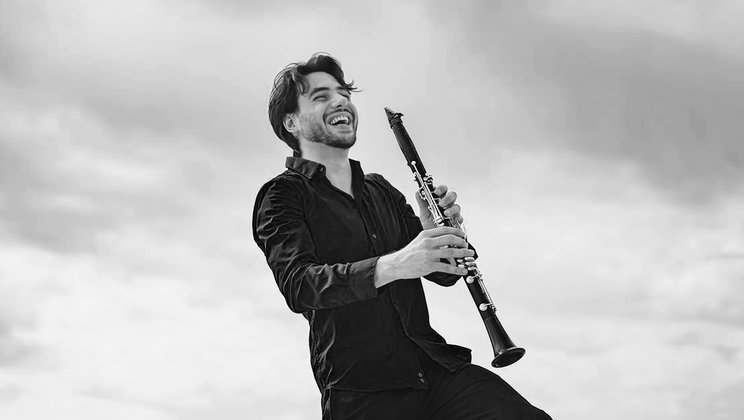Contemporary Leader Ettore Biagi
What is your approach to new music?
At some point in my life, all music is, or has been, completely new to me. Nevertheless, when it comes to working with sounds that are being created in our very times, the excitement of falling in love with something new never ends. For me the process of diving into a new piece of music very much resembles the act of meeting a person for the first time. I get hit by how the piece looks, sounds, what it seems to be saying, what it seems to be hiding, in what culture and aesthetic it is rooted, the things I understand about it and, most importantly, those that I don’t; all of these elements form a code that intrigues me and generate the emotional desire tp spend more time with that unknown “organism” that is a new score. Performance-wise, every new-music piece I meet poses a challenge that is unique to it, and probably unique to myself as a performer. To accept that challenge, that very personal struggle, it’s almost like taking the risk of jumping off a peak and landing somewhere else. Maybe a place I couldn’t even see before that has always been there. A new “somewhere” on my map.
Can you tell us what new music means to you in one word?
Growth.
What is your connection to Lucerne Festival?
I’ve been dreaming about being part of the Academy since I was seventeen. I was first chosen in 2018 and then asked to come back again as an Alum in 2019.
What especially appeals to you about Lucerne Festival Forward?
Its welcoming nature and its openness to the most diverse musical realities. This comes from an almost unprecedented bravery of embracing a truly plural approach to curation. The Forward Festival is rooted in listening and taking risks, and it is willing to engage the audience in this very mindset too. Listening to many voices and welcoming many different “sounds” (or concepts), regardless of their origin, is by definition a risk-taking approach. It pushes the personal and social boundaries of art fruition, and it nourishes creative coexistence. I’m really proud of being part of a project that not only embraces that risk but also makes it its own foundation.
How do you feel about the co-curation process?
This is my very first experience in collective curation, and I still have a lot to learn about it. It’s a very delicate and demanding process, with plenty of room for creativity. From what I’ve seen so far, it’s almost always a matter of slowly proceeding from big, fascinating abstractions to more and more concrete ideas, and it reminds me a lot of sculpting. We all look for the simplest, more compelling picture inside the raw source material, and everyone gives her/his contribution. It’s beautiful.
What can viewers expect from their participation in the webinars on 23 and 30 July 2021?
For them it will almost be like the very first bit of the Festival itself. We would like not only to explain, but also to show what the festival is about. In the first webinar, we will be addressing the key theme of Forward and talk about us as curators, while in the second webinar we will dive a bit more into the artists and the program that will be showcased at the festival. Most importantly, though, there will always be room for interactions, questions, and active engagement from the audience.
